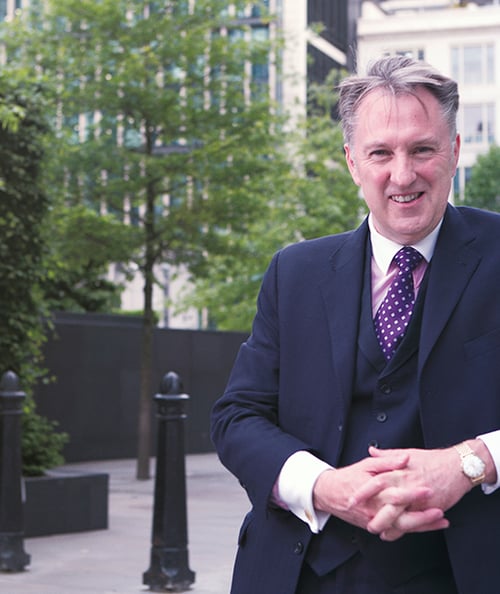
Is it Mr Kollakis, Kallakis, Καλλακης or Каллакис?
David Clarke is the former director of the UK National Fraud Intelligence Bureau, past Chairman of the Fraud Advisory Panel, and a commentator for BBC television. Mr Clarke created the AMLiss due diligence service for Guildhawk
Verifying that investors applying for citizenship are indeed who they say they are involves researching their identity and history, based on the details and documents they supply.
This process becomes more complex when the documents provided require translation. Without effective due diligence, a slight alteration in the English spelling of a person’s name could, for example, help to conceal their presence on a sanctions list.
Two small-time fraudsters
Prior to the 2008 financial crisis, Britain’s most successful confidence tricksters, Stephan Kollakis and Martin Lewis, were two small-time fraudsters who sold phony heraldic titles. They eventually progressed to conning two big banks out of £750m (US$963.6m). They did this by reinventing themselves as property tycoons Achilleas Kallakis (with an ‘a’) and Alex Williams.
They succeeded in cheating the banks for five years, taking mortgages for London properties that were overvalued and pretending they had a major Hong Kong corporation and a US oil family as tenants and investors.
Their deception was only discovered when a bank in Germany, looking to purchase the debt, made local enquiries about their stories. Kallakis and Williams were eventually prosecuted by the UK’s Serious Fraud Office and, in 2013, they were sentenced to 10 years in prison. The stolen money, however, was never recovered.
Kallakis and Williams used fake documents and a friendly lawyer prepared to commit crime. Fake passports, birth certificates, and company ownership papers that are convincing (or genuine but issued in error) can pose serious problems for governments and financial institutions that are not prepared to spot deception.
Innovations in Passport Security Features
Advances in passport security features, such as biometrics and the UK’s document checking service pilot, have gone a long way to tackling counterfeiting.
However, these have limitations in terms of genuine passports issued to those who have obtained them illicitly. In 2016, journalists revealed that a little-known law-which gave those living in former Portuguese colonies the right to come to Europe-had been exploited by criminals who sold fake documents that entitled the holders to obtain an authentic EU passport.

David Clarke, Group Head, Integrity & Multilingual Due Diligence
These risks can be mitigated by requiring a wide variety of documentation, instructing third-party checks, and ensuring that multilingual due diligence is performed on individuals.
People applying for citizenship by investment in a reputable jurisdiction must supply a range of personal information and supporting documents as evidence of their identity, history, wealth, and assets. Those from countries where English is not the first language will generally supply these in their local language along with a translation that has been certified and notarised by a trusted party.
Countries seeking to attract only citizenship investors of the highest quality also outsource multilingual, enhanced due diligence to external firms. This results in a more expensive due diligence process, and additional work for authorities and their partners, but the effort is rewarded when it prevents citizenship being granted to those who could harm the nation.
On the other hand, while seemingly cheaper and faster, due diligence systems lacking breadth and a third-party, multi-lingual dimension, such as the models applied, for example, in Cambodia, Jordan, and Turkey, leave countries and their international partners open to national security concerns.
Without effective due diligence, a slight alteration in the English spelling of a person’s name could, for example, help to conceal their presence on a sanctions list.
Multilingual enhanced due diligence applies the following additional controls:
- Official identity documents and other supporting information that require translation are provided by a reputable organisation that has no conflict of interest with the applicant and are approved by the authority.
- Where necessary, online and face-to-face interviews with the applicant are conducted in the applicant’s mother tongue using a professional interpreter, acting on behalf of the authority, who has no conflict of interest with the applicant.
- Names of applicants that have been translated into English are verified by professional linguists from a reputable organisation that has no conflict of interest with the applicant.
- External due diligence is conducted in both English and the applicant’s language of origin (or the language of the country in which the applicant resides) using fuzzy matching, phonetics, and machine learning tools.
- Inquiries to verify information supplied by the applicant are conducted, on behalf of the authority, by a professional investigator proficient in English and the local language and dialect, who has no conflict of interest with the applicant.
- Accurate records are kept to evidence multilingual external due diligence, including the online search criteria used and the identities of linguists employed, and these are managed in accordance with the ISO:27001 data security standard.